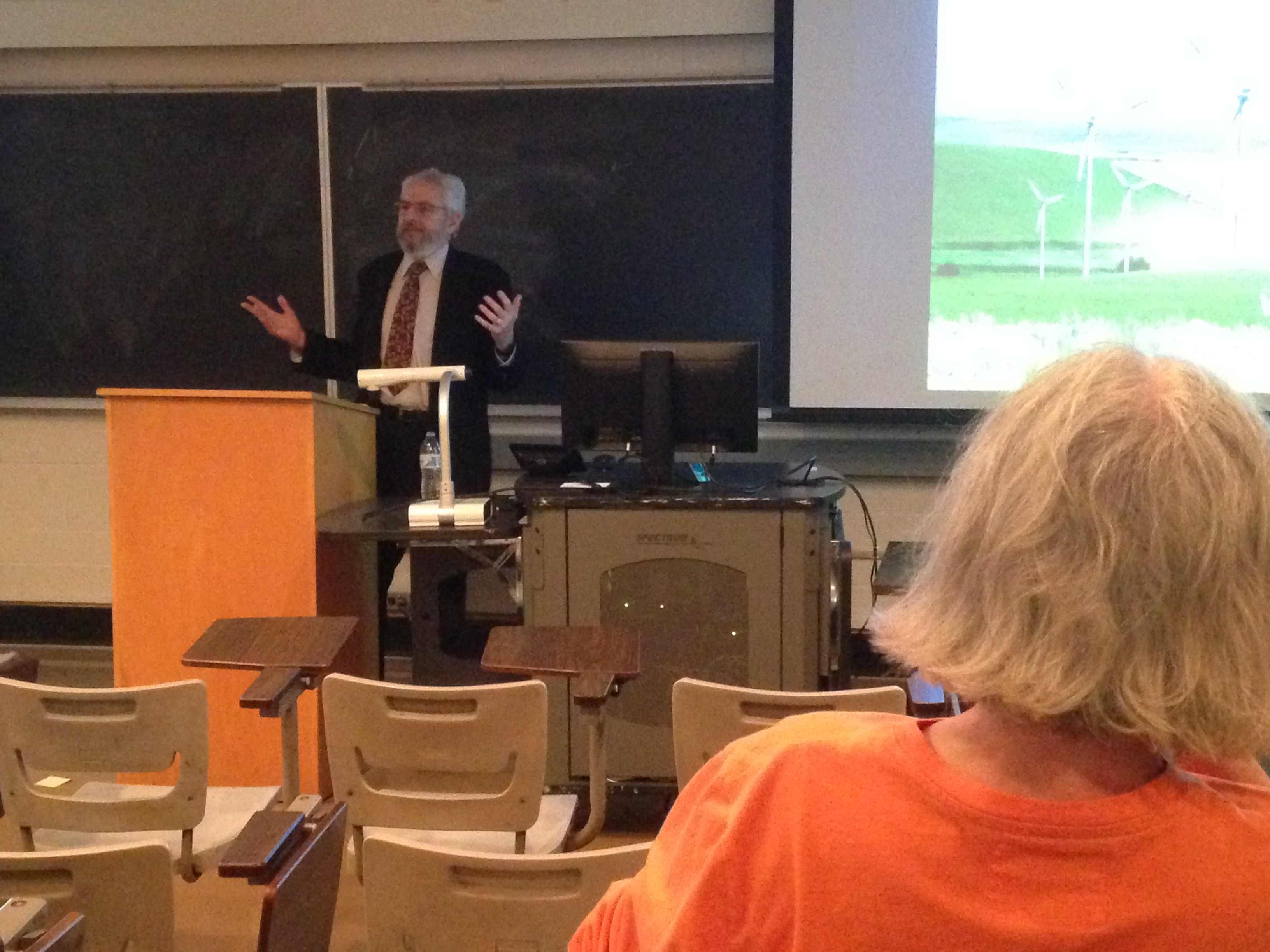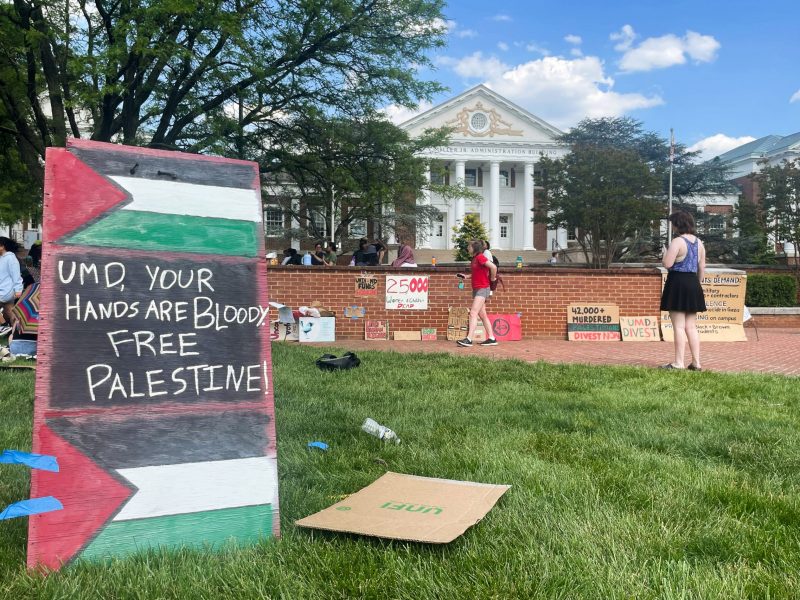By Chuck Dobrosielski
For The Diamondback
Author and physics historian Spencer Weart remembers the moment he realized climate change was real.
After about eight years of researching for a book he had been writing on climate change science, he came across an article that he said solidified everything for him.
“I read this paper and I was going off to Xerox it, and I sit at the Xerox machine, and I said, ‘Oh, shit,'” Weart said, laughing at the memory. “‘It’s real. It’s here. It’s happening. It’s going to be here.'”
Weart spoke to about 20 people Thursday night in Francis Scott Key Hall about the history of climate change research from when the first theories came out in the 19th century to today, when the majority of scientists believe climate change is real, he said.
Author of “The Discovery of Global Warming,” Weart was first introduced to the idea of global warming when he was writing a book about the existential risk of nuclear fallout. He came across arguments supporting nuclear reactors and how they would not cause the greenhouse effect. Having never heard of this before, he looked up the greenhouse effect.
“I discovered this was also an existential risk to civilization,” Weart said.
After he finished the book on nuclear fear, he moved on to researching climate change. At first, he said he expected the book would be about the scientific processes, and that the issue would not be settled any time soon. Despite his initial skepticism, he said the science eventually converted him. During the talk, he explained the evolution of scientists’ understanding of climate change.
Robert Friedel, a professor in the history and environmental science and technology departments, said he has known Weart for more than 40 years and uses his material to teach courses in environmental history.
“You know a little bit here, you know a little bit about the science there, even some of the politics, but what he is able to do is to bring together the entire picture with considerable authority,” Friedel said.
Sophomore government and history major Danny Hoffman came to the talk for one of his classes. Surprised at how recent the idea of climate change is, Hoffman said he “didn’t realize that it didn’t seriously start being a thing until the early 1930s and until the second half of the 20th century.”
Weart said in addition to living a greener lifestyle, people have to become politically involved if they want to fight climate change.
“The voters in the United States are now in a unique position to do something of beyond historic importance,” Weart said. “We are in a position to save civilization as voters and as people who participate in the political process.”
Greg Good, the current director of the Center for History of Physics at the American Institute of Physics — a position Weart once held — agreed with what Weart said Thursday.
“One of his most important points is that the science is solved,” Good said. “Now, it’s a political problem rather than a scientific problem.”



